Research
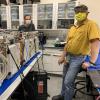 After large portions of the University of Colorado Boulder shut down due to the coronavirus pandemic, you could practically hear a pin drop on campus. But in the Aerospace Building, an array of space-critical research projects at...
After large portions of the University of Colorado Boulder shut down due to the coronavirus pandemic, you could practically hear a pin drop on campus. But in the Aerospace Building, an array of space-critical research projects at...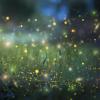 National Geographic talks with CU Boulder students and faculty in the College of Engineering and Applied Science studying fireflies.
National Geographic talks with CU Boulder students and faculty in the College of Engineering and Applied Science studying fireflies.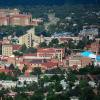 The University of Colorado jumped from No. 53 to No. 20 in a recent global ranking of the top 100 universities granted U.S. utility patents for an array of inventions and innovations that can have far-reaching and positive impacts on society.
The University of Colorado jumped from No. 53 to No. 20 in a recent global ranking of the top 100 universities granted U.S. utility patents for an array of inventions and innovations that can have far-reaching and positive impacts on society.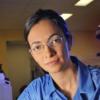 Assistant Professor Marina Vance’s group has published a new research paper titled “Indoor particulate matter during HOMEChem: Concentrations, size distributions, and exposures” in the journal Environmental Science & Technology.
Assistant Professor Marina Vance’s group has published a new research paper titled “Indoor particulate matter during HOMEChem: Concentrations, size distributions, and exposures” in the journal Environmental Science & Technology.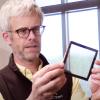 Researchers at CU Boulder have developed an improved method for controlling smart tinting on windows that could make them cheaper, more effective and more durable than current options on the market.
Researchers at CU Boulder have developed an improved method for controlling smart tinting on windows that could make them cheaper, more effective and more durable than current options on the market.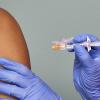 A multidisciplinary team is working to build a pilot-scale system capable of producing 10,000 to 100,000 doses of COVID-19 vaccines per run that would be ready for use as human trials of vaccines begin in the next year.
A multidisciplinary team is working to build a pilot-scale system capable of producing 10,000 to 100,000 doses of COVID-19 vaccines per run that would be ready for use as human trials of vaccines begin in the next year.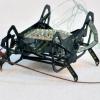 This machine, the brainchild of CU Boulder engineer Kaushik Jayaram and colleagues at Harvard University, gives a whole new meaning to the word small: HAMR-Jr can just about squeeze onto the surface of a penny and weighs far less than a paperclip.
This machine, the brainchild of CU Boulder engineer Kaushik Jayaram and colleagues at Harvard University, gives a whole new meaning to the word small: HAMR-Jr can just about squeeze onto the surface of a penny and weighs far less than a paperclip.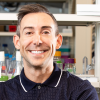 CU Boulder researchers have discovered that a synthetic molecule based on natural antifreeze proteins minimizes freeze-thaw damage and increases the strength and durability of concrete, improving the longevity of new infrastructure and decreasing carbon emissions over its lifetime.
CU Boulder researchers have discovered that a synthetic molecule based on natural antifreeze proteins minimizes freeze-thaw damage and increases the strength and durability of concrete, improving the longevity of new infrastructure and decreasing carbon emissions over its lifetime.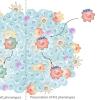 Innovative 'backpack' particles help macrophages resist assimilation by tumors.
Innovative 'backpack' particles help macrophages resist assimilation by tumors.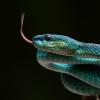 Professor Yifu Ding is starting a new research project that explores how soft robots of the future could include new materials inspired by snakeskin.
Professor Yifu Ding is starting a new research project that explores how soft robots of the future could include new materials inspired by snakeskin.

